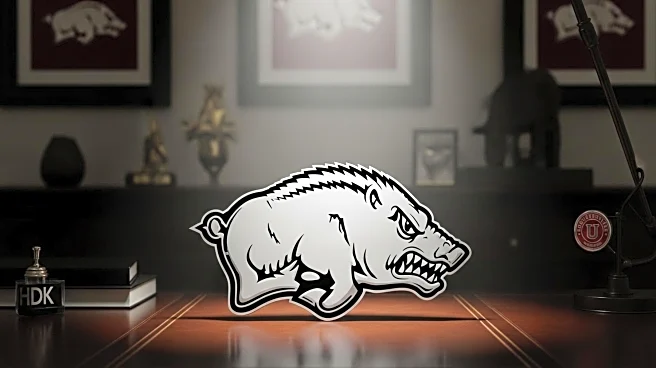What's Happening?
The University of Arkansas has announced the termination of Sam Pittman as the head coach of the Razorbacks football team. This decision comes amid concerns over the team's performance under Pittman's leadership. The announcement was made as part of a broader update from the Little Rock Public Radio Newsroom. Pittman, who has been with the Razorbacks for several seasons, faced increasing pressure as the team struggled to meet expectations. The firing is part of a series of changes within the university's athletic department aimed at improving the team's competitive standing.
Why It's Important?
The firing of Sam Pittman is significant for the University of Arkansas as it seeks to revitalize its football program. The decision reflects the university's commitment to enhancing its athletic performance and competitiveness in collegiate sports. This move could impact recruitment strategies, team morale, and the university's reputation in the NCAA. Stakeholders, including students, alumni, and fans, may experience shifts in engagement and support depending on the team's future direction. The change in leadership could also influence the university's financial aspects related to sports, such as ticket sales and sponsorships.
What's Next?
Following the firing of Sam Pittman, the University of Arkansas will likely begin the search for a new head coach to lead the Razorbacks. This process will involve evaluating potential candidates who can bring a fresh perspective and improve the team's performance. The university may also implement strategic changes in its athletic program to support the new coach. Fans and stakeholders will be watching closely to see how these developments unfold and what impact they will have on the team's future success.
Beyond the Headlines
The decision to fire Sam Pittman may have deeper implications for the University of Arkansas, including potential shifts in its athletic culture and priorities. The university's approach to selecting a new coach could reflect broader trends in collegiate sports, such as an emphasis on innovative coaching techniques and player development. Additionally, this change may prompt discussions about the pressures and expectations placed on college coaches and the balance between athletic success and educational values.











